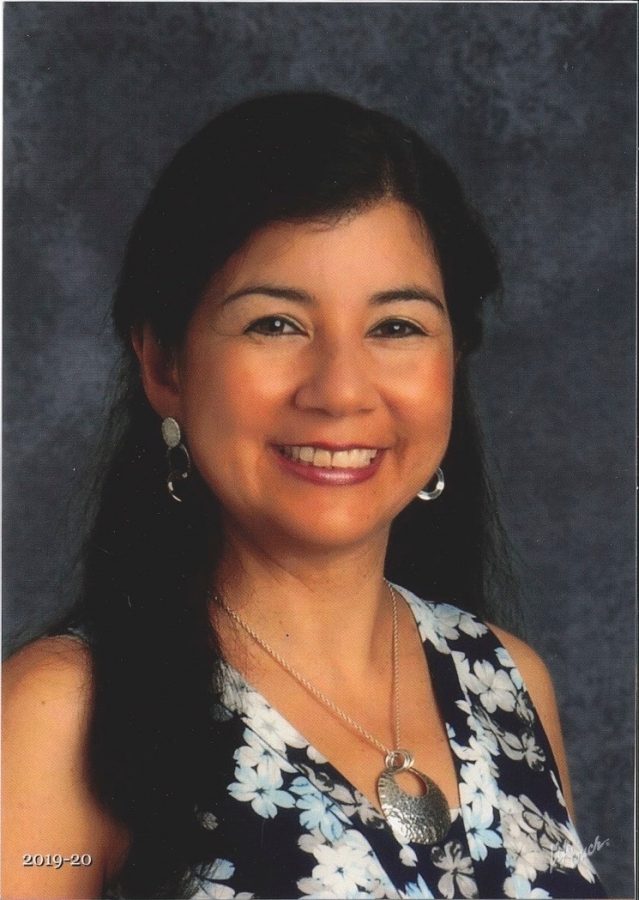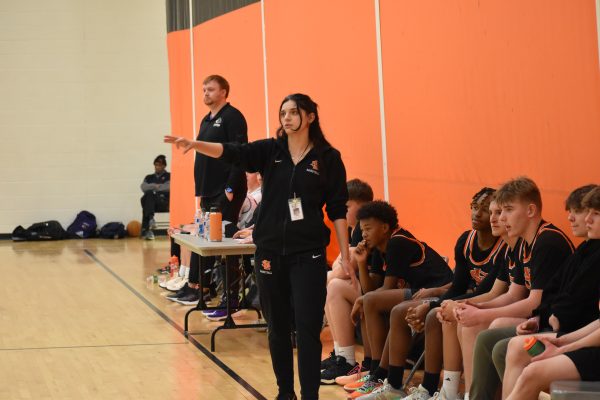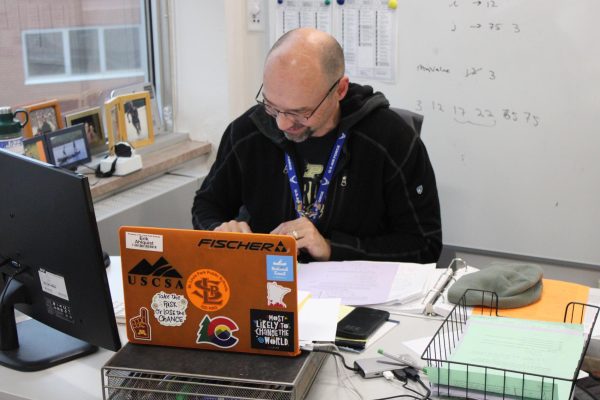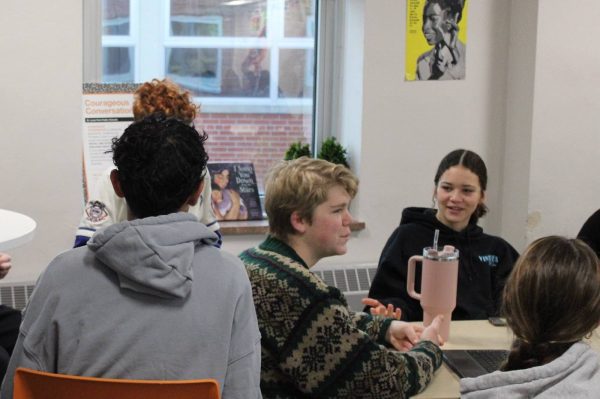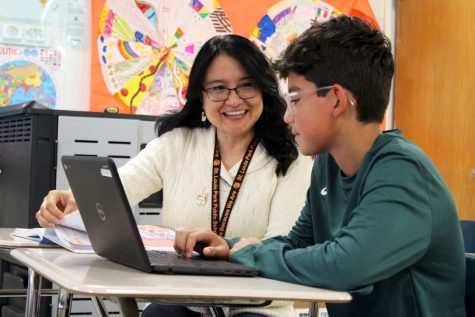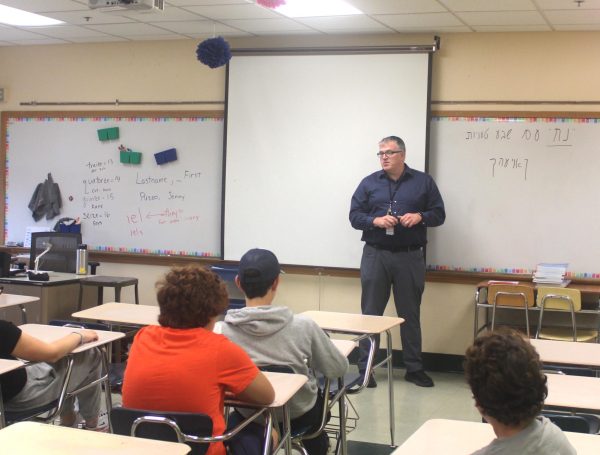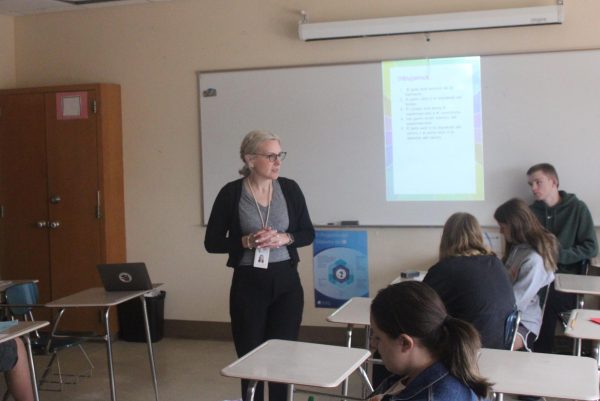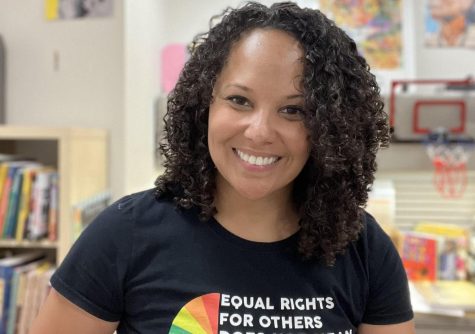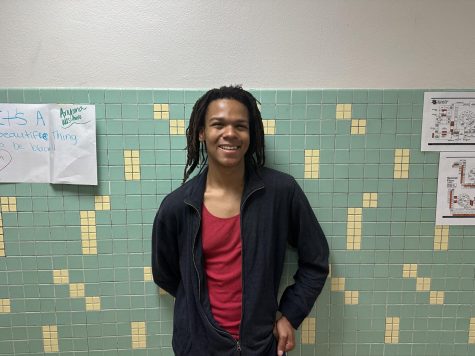Spanish teacher brings new voices into curriculum
Anderson introduces Afro-Latin texts and art to class
December 23, 2020
Spanish teacher Hanna Anderson said when she heard the International Baccalaureate Spanish curriculum was changing, she knew she had to take advantage of the opportunity.
“I’ve been meaning to change the literary works and the topics that I teach, as part of the IB program,” Anderson said. “So the fact that this year, I had to change the curriculum because IB had these new changes in their course gave me that opportunity.”
Anderson has started teaching about race and racism in Spanish speaking countries, as well as amplifying the works of Afro-Latin writers and artists.
Senior Evie Gutzke, a student in Anderson’s International Baccalaureate (IB) Spanish Language and Literature class, said the new material has served as somewhat of a wake-up call for them.
“You don’t really think about racism anywhere else besides in America and in white-dominant countries,” Gutzke said. “You don’t really think about it in these Latin countries that are full of Hispanic people — there’s also racism against Black people there.”
According to Anderson, she wanted to find a way to teach her students Spanish while keeping the topics of discussion applicable to today.
It’s so relevant and important today that we teach about things that matter.
— Hanna Anderson
“We want to foster the students’ approaches to learning, we want them to develop communication skills, research skills, thinking skills, but the idea is to do that as that relates to topics that are relevant in today’s society,” Anderson said.
Gutzke said they have found themselves more involved with class discussions, as they are learning about something relevant to them and something they are passionate about.
“I’m a big supporter of the Black Lives Matter movement and it’s something that I really care about, and so being able to talk about it in Spanish class gets me more involved in the class because I want to be able to talk about this,” Gutzke said.
Anderson said she hopes her lessons stick with her students as they leave her classroom and they take the knowledge with them for future use.
“It’s so relevant and important today that we teach about things that matter, that we teach them something that matters now and will matter when they graduate from high school, or will matter when they go to the store or when they interact with somebody who doesn’t look like them,” Anderson said.
According to Gutzke, while getting the right representation to have these discussions is difficult, having the discussions themselves is the key to creating a better society.
“It’s hard to get a full group of people to talk about this because we just don’t have the representation, but also it’s important to talk about it, even if we don’t I feel like the people in that class needed to learn about it,” Gutzke said.
Anderson said while she and many others in the class might not have enough resources or experience to truly understand some of the complex topics discussed in class, she hopes the lessons and materials she provides will help expand her and her students’ perspectives.
“I don’t know it all. I’m not expected to know it all,” Anderson said. “But I can do better… by starting to listen and learn about other people.”



